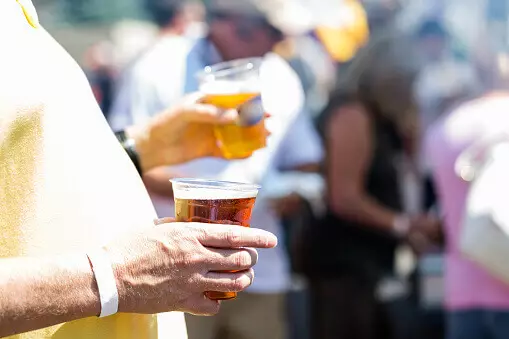People often wonder, “Am I an alcoholic if I have a little too much to drink?” Interestingly, being in denial about an alcohol use disorder is easy. Mainstream society accepts the use of the drug and even abuse of it on occasion. However, if you’re asking yourself probing questions about your drinking habits, there might be more to them.
Common Misconceptions about an Alcohol Use Disorder Color Perception
Many people believe that alcoholics are the “other” people—the ones who are homeless, jobless, and friendless. In reality, people struggling with an alcohol addiction can have jobs, be moms or dads, and own homes. They run companies, work steady jobs, volunteer for charities, and coach children’s sports. In short, anybody could be suffering from this disease.
Am I an Alcoholic if I’m …?
Typically, there are three distinct signs that your casual drinking has given way to an abuse problem. For starters, you drink heavily. Medical experts consider four drinks a day to be a sign of heavy drinking. If you have more than 14 drinks in a week, they also consider you a heavy drinker.
Binge drinking is another warning sign. It’s possible to go for days without drinking and then suddenly start bingeing. From there, it’s easy for the behavior to become a daily occurrence. Bingeing refers to imbibing more than four or five drinks within a couple of hours.
A third warning sign is the possible outcome of your drinking. A glass of wine or beer with dinner is likely to have no adverse outcome. However, if you find that you neglect responsibilities or engage in risky behavior because of drinking, there’s a problem.
Treatment Can Help You Overcome an Alcohol Use Disorder
When you recognize that your drinking has turned from occasional indulging to addiction, it’s time to seek help. Rehab facilities routinely work with people just like you who need assistance to beat an addiction. Therapists use a variety of treatments to help patients break out of their substance abuse cycle. Examples include:
- Treatment for co-occurring disorders that makes it possible to explore and handle underlying mental health challenges
- Talk therapy in the form of cognitive behavioral therapy and similar modalities to change disruptive patterns
- Group therapy, which allows for peer input and builds self-esteem
- Holistic wellness treatments that enable the healing on multiple levels via massage therapy or acupuncture
- Life skills training that helps you get into the swing of going about a typical day without using alcohol
Where to Find Help
Was your answer to “Am I an alcoholic?”, yes? If you or a loved one suffer from an alcohol abuse problem, the therapists at 1st Step Behavioral Health can help. Why let alcohol rob you of your enjoyment and sense of self-worth for another day? Get in touch with the knowledgeable therapists to learn more. Call (855) 425-4846 now for immediate assistance!
Jump to a Section
Call (855) 425-4846
